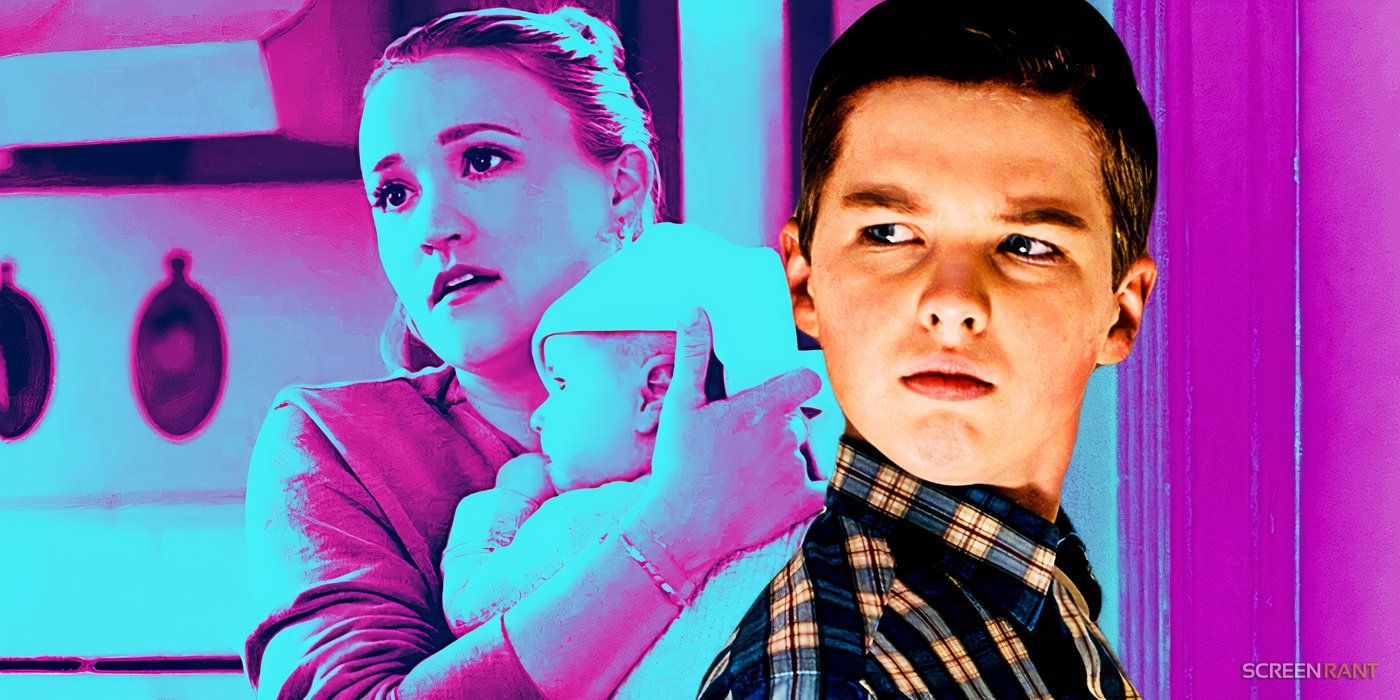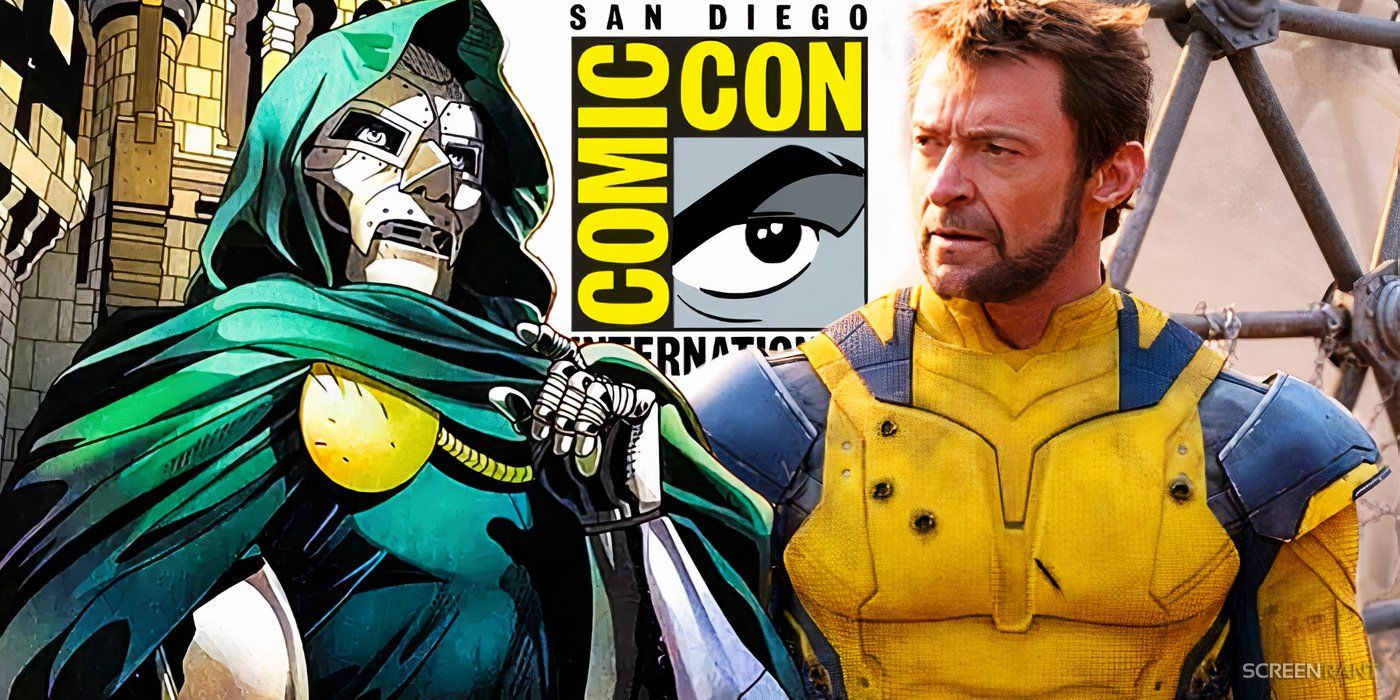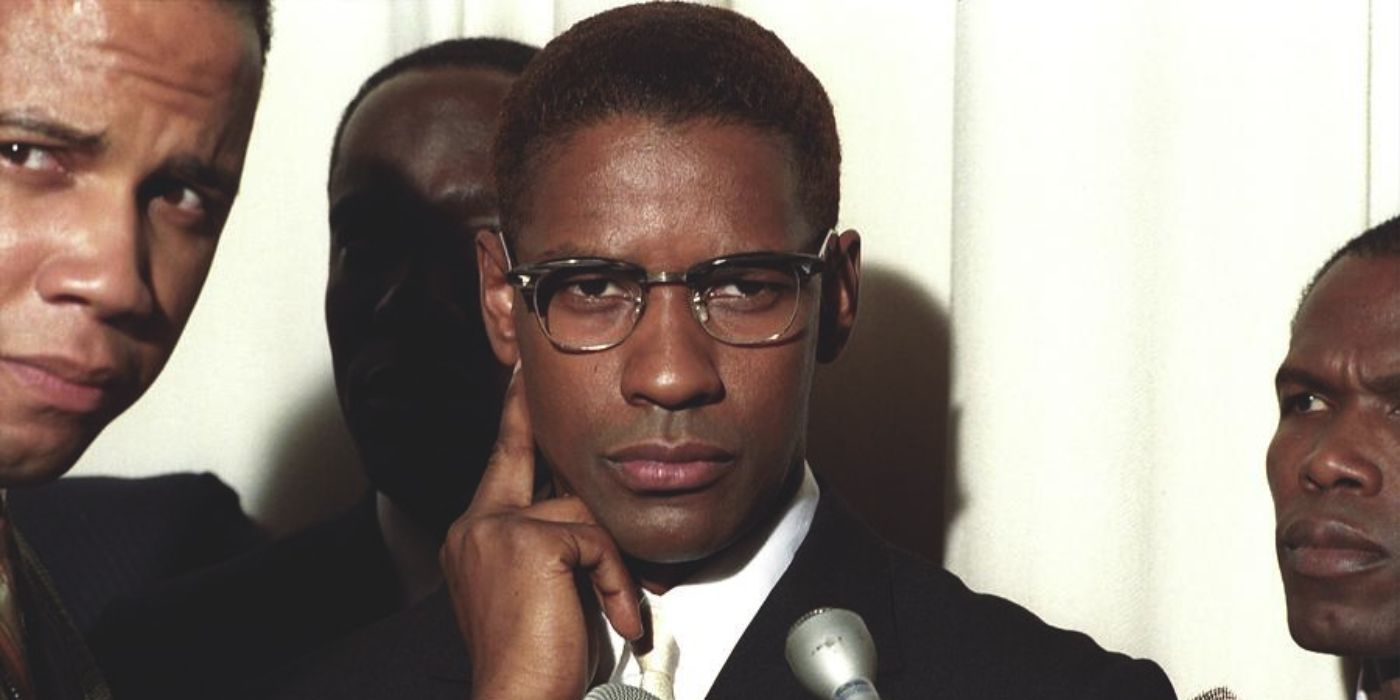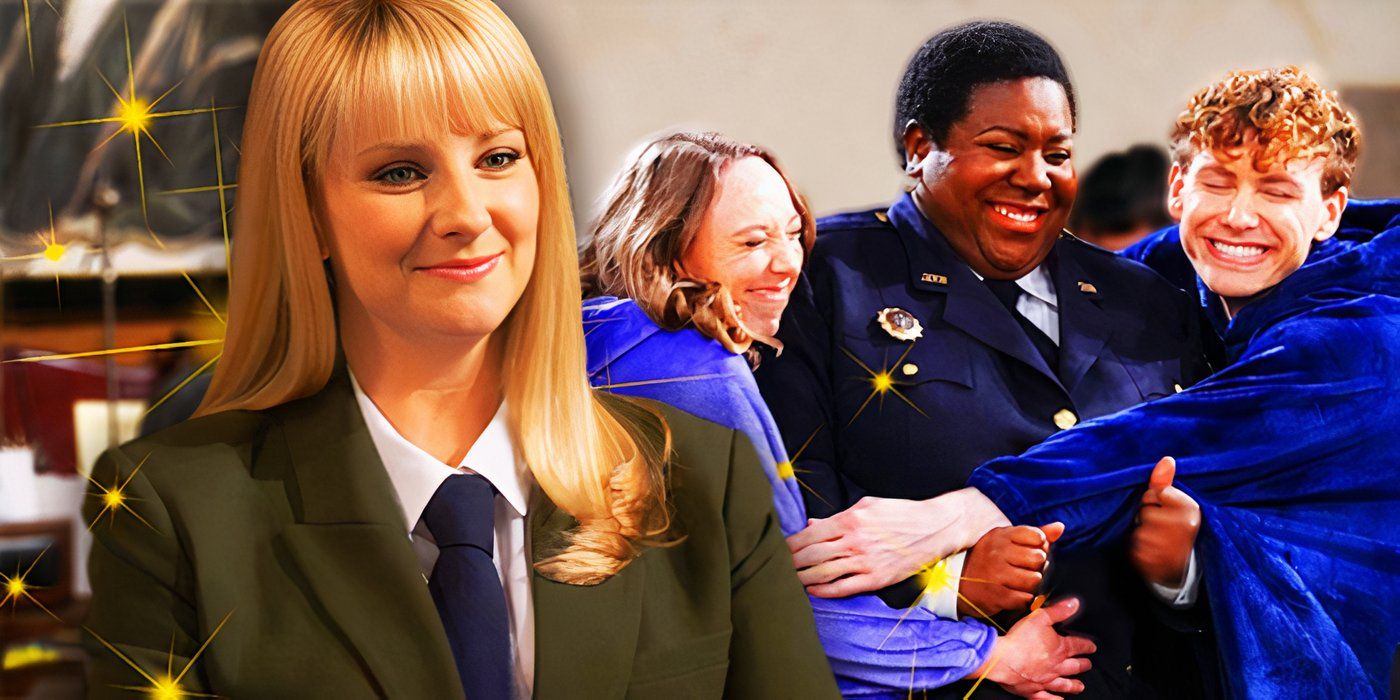Kenneth Branagh’s A Haunting in Venice is a thrilling entry in the whodunit genre, but there are plenty of other quality films similar to it in premise. While British writers Sir Arthur Ignatius Conan Doyle and Agatha Christie are among the most recognized writers in the whodunit genre, their novels and characters have inspired thousands of writers worldwide. Tropes commonly associated with the whodunit genre include but aren’t limited to hard-boiled detectives, intricately complex plots and twists, and clues hidden throughout the movie to offer readers/viewers hints as to who the story’s killer might be.
In more recent years, audiences have come to expect more challenging plots, concepts, and themes in whodunits, thus leading to a unique blending of other classic genres such as horror and even Westerns to help keep things fresh. While the subtext for older films in the genre typically centered around matters of trust and loyalty, more contemporary takes have also tackled themes of politics, world governments, race, and mental health. From beloved filmmakers the world over, the whodunit theme has seen some interesting takes through the years.
10 Bodies Bodies Bodies
Comedy Horror
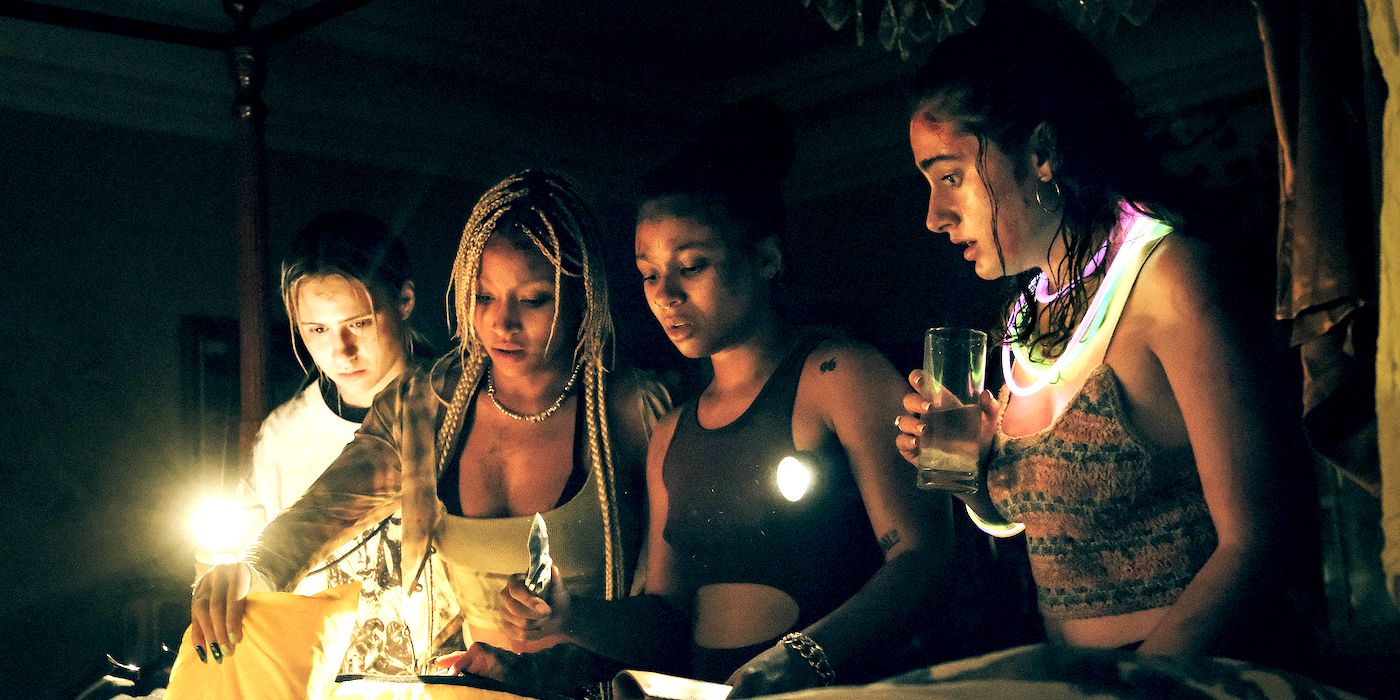
2022’s Bodies Bodies Bodies is one of A24’s best horror movies, however, it didn’t earn this distinction simply because of its horror. The film’s sharp wit and satirical take on Gen Z culture helped make the movie feel fresh as it focused more on the relationships between the characters than it did on the mystery. Nevertheless, the film fits the whodunit genre because of its suspenseful plot regarding the murder of 20-something party girls. While the film largely follows the whodunit’s familiar tropes, the twist ending forces the audience to reevaluate its stance on a lack of trust and the damage it can cause among friends.
9 See How They Run
Comedy Mystery
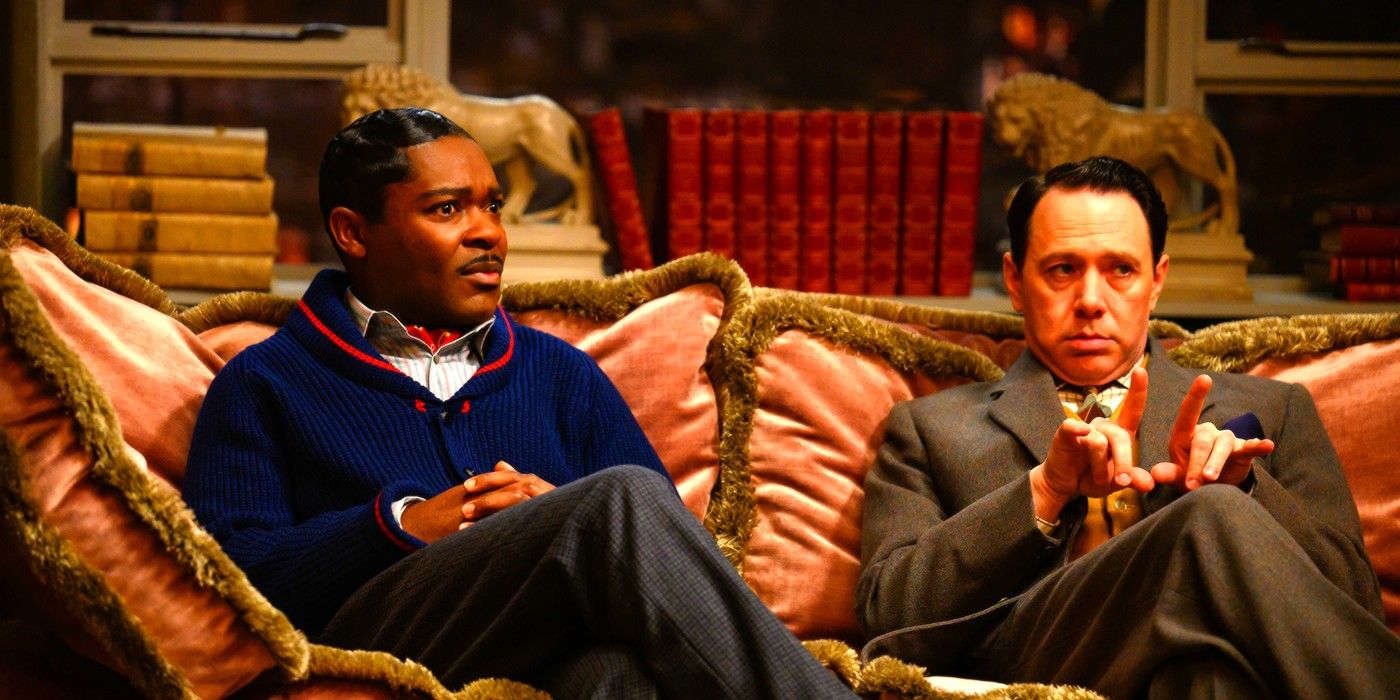
See How They Run is among one of the most interesting takes on the whodunit as it seemingly relishes in the obvious Christie influences. It achieves this by having a mostly British cast portraying stereotypically British characters all of whom are trying to discover who killed the popular actor in a highly anticipated British play. See How They Run performed modestly well at the box office and was generally well-received by critics largely due to its tongue-in-cheek nature.
While the movie has plenty of suspense to keep its tone familiar, the humor is what makes the ensemble cast shine. Many of the featured stars are most known for their dramatic work, but seeing them play over-the-top British characters and deliver some of the funniest quotes in See How They Run almost makes the audience forget there’s a crime that needs to be solved. Wildly entertaining and still faithful enough to keep viewers on edge, See How They Run is a welcomed addition to the whodunit.
8 Insomnia
Psychological Thriller
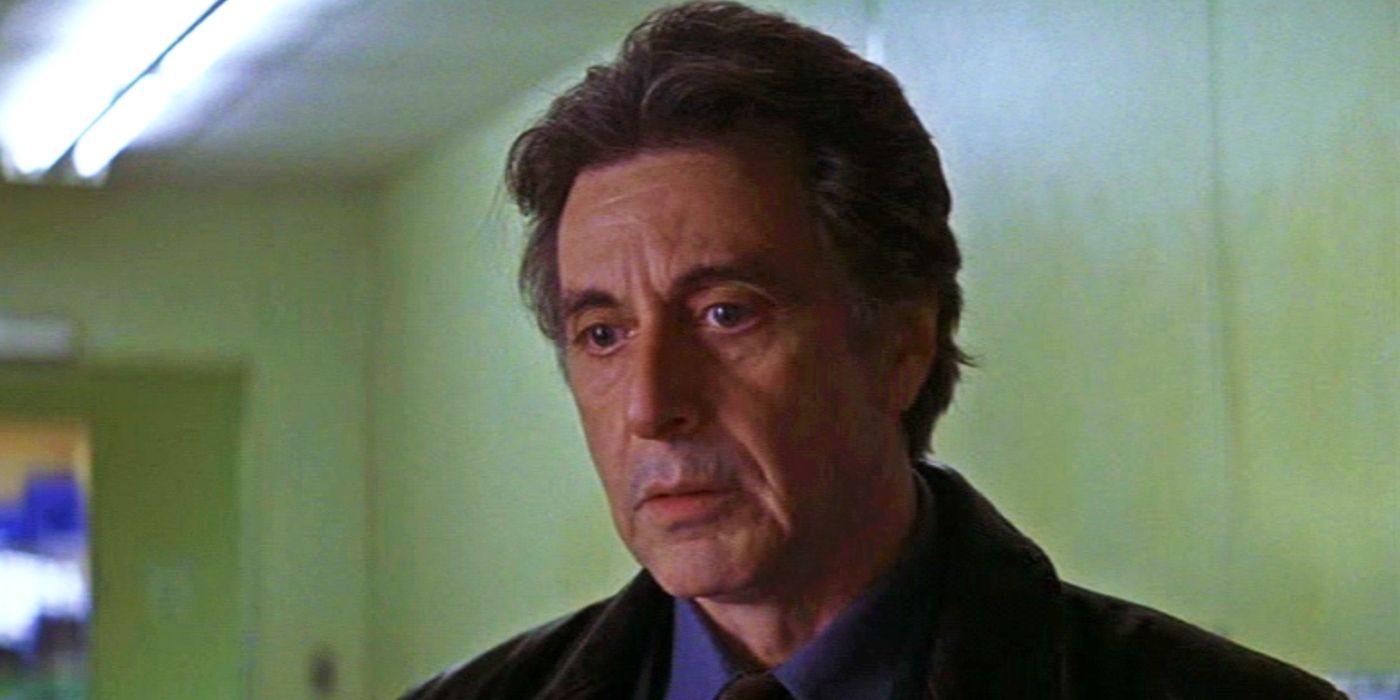
Sometimes considered one of Christopher Nolan’s best movies, Insomnia isn’t among his most recognized works, but with a filmography consisting of critical darlings like his Dark Knight Trilogy, The Prestige, and most recently, Oppenheimer, it isn’t difficult to see why. Despite Al Pacino and the late Robin Williams starring alongside one another in this deliciously moody film, the American remake of the 1997 Norwegian film didn’t make much of a splash with critics back in ’02. Insomnia is unique from other whodunits in that it is one of the more straightforward stories in the genre.
Additionally, the film’s handling of guilt is among one of the best seen in cinema. While most whodunits thrive on their ability to keep an audience engaged with its mystery and intricate plot, Insomnia excels by making its audience question the motives of its hero. Nolan achieves this by making the film’s already shady protagonist an insomniac whose memory is unreliable at best. With Pacino’s strong performance and Williams’ ability to challenge Dormer’s morality, it’s a shame Insomnia isn’t more widely known.
7 Clue
Black Comedy Mystery
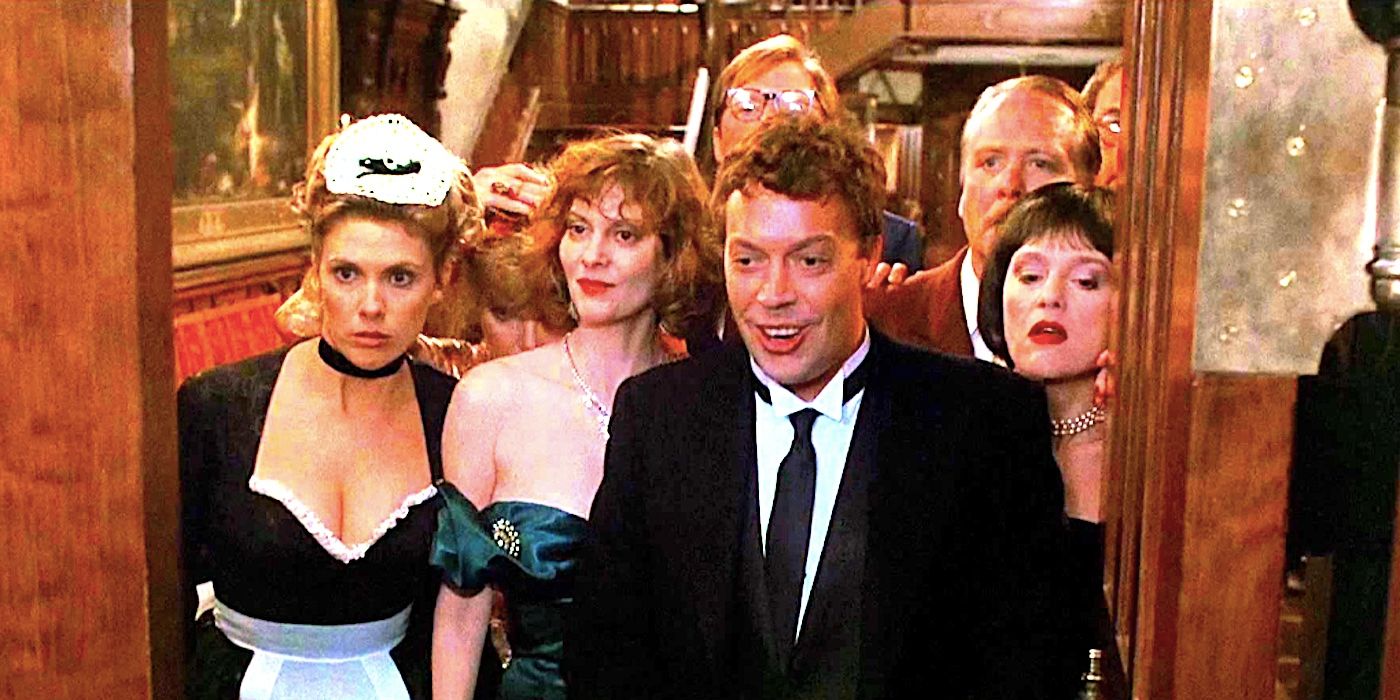
Released in 1985, Clue is not only one of the most well-known whodunit ever made, but it is also among one of the funniest – thanks to its ensemble cast of classically trained actors. Based on the popular board game of the same name, Clue centers around a group of six strangers with wildly differing personalities trapped inside a mansion during a particularly stormy night who must work together to solve a murder. Despite the film’s hilarity, Clue is a clever movie as the majority of it blatantly pokes fun at the often absurd nature of most whodunits.
Moreover, Clue is also known for its three different endings, each of which recontextualizes the events in uniquely interesting ways. While the three endings were initially regarded as a cheap gimmick during its release, they’ve since been seen as trailblazing as many films in the genre contain multiple endings in their home release special features. One of the essential films in the genre, Clue is the perfect whodunit for audiences who also want a good laugh.
6 Death on the Nile (1978)
Mystery
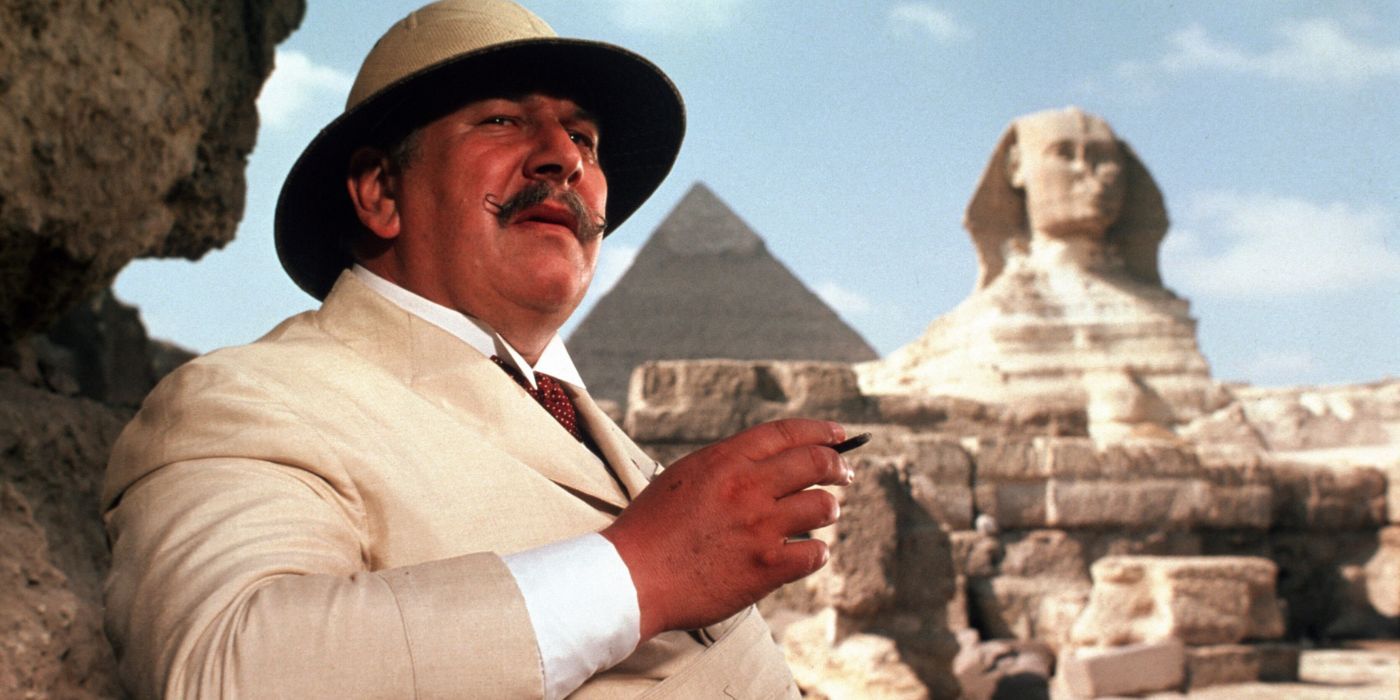
Not to be confused with the 2022 adaptation, John Guillermin’s 1978 adaptation of the 1937 Christie novel is considered one of the best adaptations of the author’s work. Featuring yet another cast of beloved British actors, Death on the Nile sees the always savvy and intelligent Hercule Poirot solving a murder along a paddle steamer as it travels through Egypt. The film offers some of the best performances in a whodunit and is also notable for its runtime, clocking in at 140 minutes.
While critics initially took umbrage with the film’s length, it has since been reevaluated by modern audiences as a necessary evil in telling the story. Many other police procedurals fall into the trap of having their detective solve crimes too fast, thus taking away much of the impact once everything is solved. Death on the Nile electing for a longer runtime makes more sense as it often takes an exhaustive amount of time for detectives to solve real-life crimes. Despite not being appreciated upon release, Death on the Nile‘s length greatly aids in making the film the gem that it is today.
5 Cure
Psychological Horror
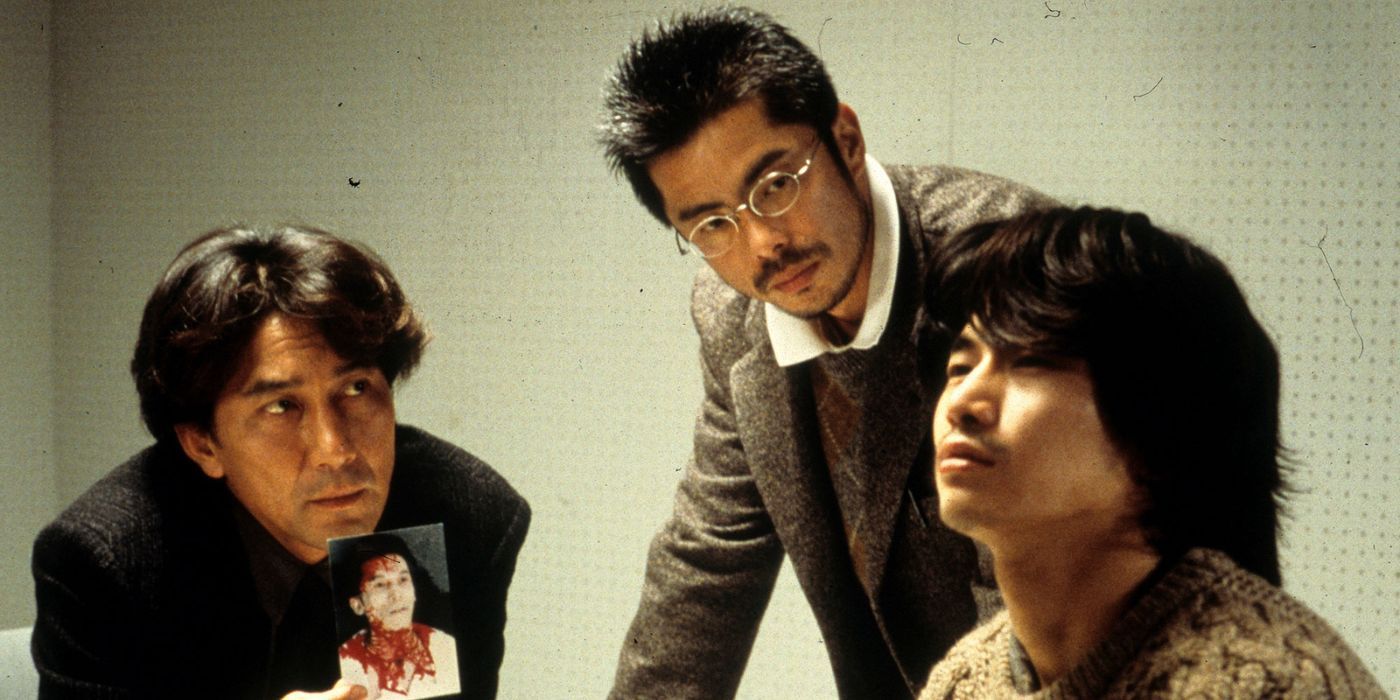
Kiyoshi Kurosawa’s 1997 psychological horror film Cure follows a Japanese police detective and a forensic psychologist as they investigate a series of violent and gruesome murders occurring throughout various metropolitan cities in Japan. The film is lauded worldwide for its accurate depiction of investigative police work as well as how it tactfully handled the depictions of various mental health disorders – particularly schizophrenia. Additionally, the film’s usage of memory loss heightens things as some of the key characters investigating the crimes begin to doubt and suspect one another.
While the film isn’t the most recognizable by name, it has developed a loyal group of supporters throughout the years. Additionally, South Korean filmmaker Bong Joon-ho has considered it one of the greatest films of all time because of its themes and masterful filmmaking. Cure works as a great whodunit because it tricks its audience into thinking that its once-trustworthy characters might be hiding something sinister underneath the surface.
4 The Hateful Eight
Western Mystery Thriller
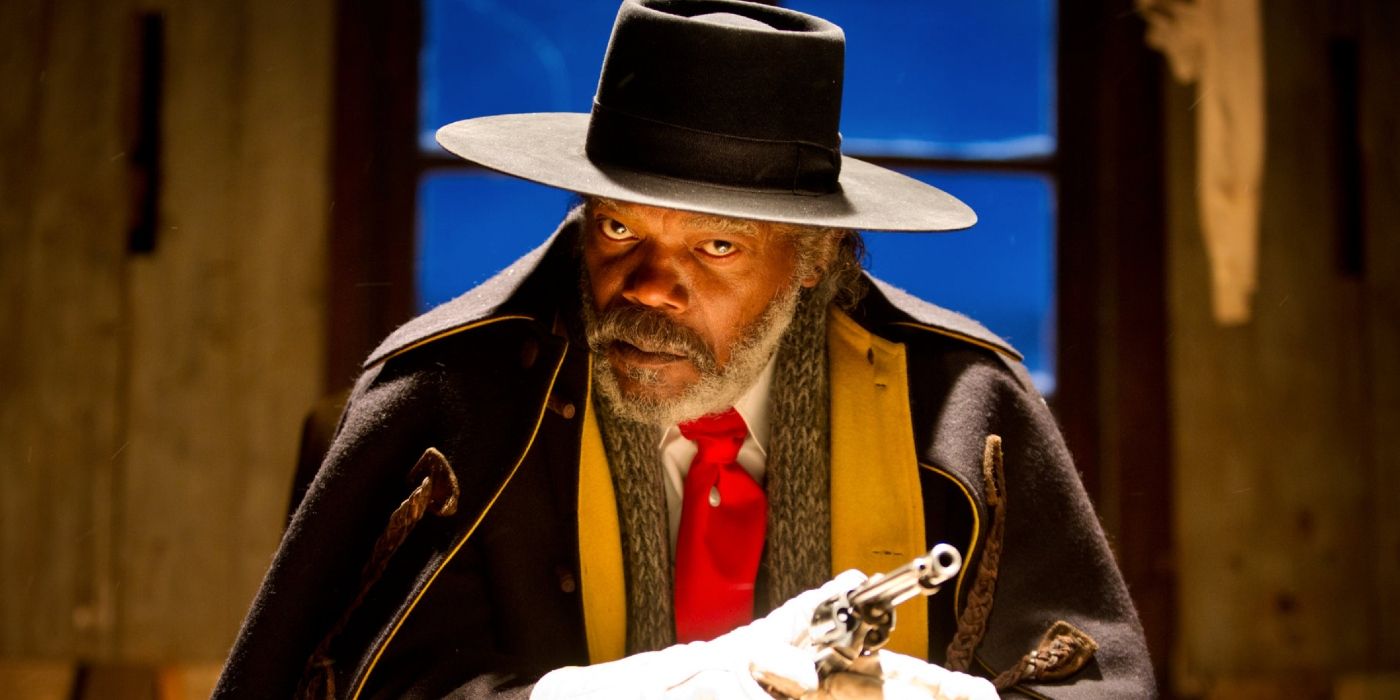
Quentin Tarantino’s 2015 Western The Hateful Eight sees a group of eight characters taking refuge from a harsh blizzard inside a haberdashery while also suspecting each other of their true identity and motives. Hearkening back to his debut film Reservoir Dogs and John Carpenter’s The Thing, The Hateful Eight utilizes exceptional dialogue and out-of-sequence storytelling to deliberately confuse and misdirect its audience. Moreover, with virtually every character in the film being of ill repute, there’s seldom a moment before the big reveal where anyone’s word can be taken to heart.
The Hateful Eight might not go down in history as one of Tarantino’s most famous works, but it is arguably one of his best. While his dialogue and non-chronological order storytelling have become staples of his work, they work very well in a story rife with lies and uncertainty. Furthermore, Tarantino’s decision to set it during a post-Civil War America offered its audience plenty of subtexts regarding race and racism – especially during a particularly contentious time in the nation. Well-written and providing viewers with a theater-like quality, The Hateful Eight is a whodunit for the ages.
3 Shutter Island
Neo-Noir Psychological Thriller
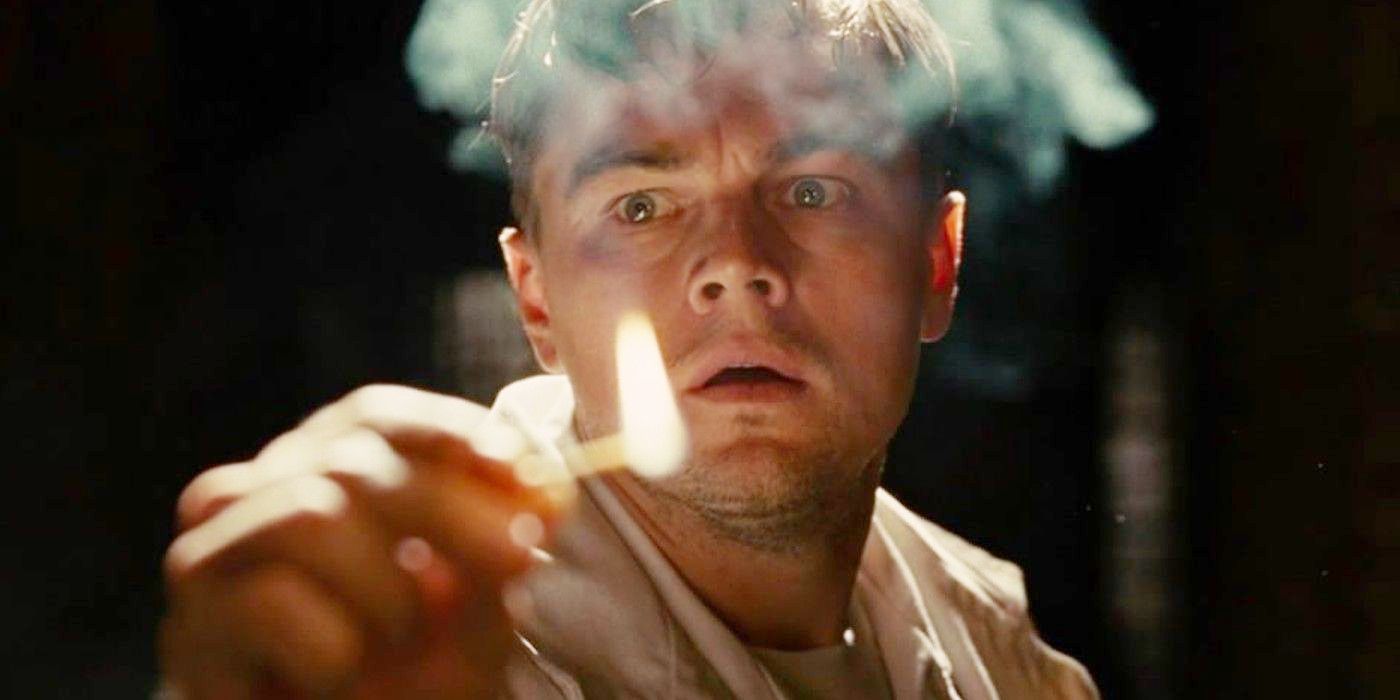
Martin Scorsese’s 2010 neo-noir psychological thriller raised eyebrows upon its announcement considering the filmmaker’s proclivities for period pieces and films set to a gangster backdrop. Starring frequent collaborator Leonardo DiCaprio, Shutter Island follows U.S. Marshal Edward “Teddy” Daniels as he investigates a series of bizarre happenings on an isolated island. The deeper the film goes, the more unsettling and complex things become, thus forcing Teddy – and the audience, to consider how much of what they’re seeing is real.
While Shutter Island‘s twist ending is well-known at this point, the film is still fun to revisit because of the many blatant and obvious hints Scorsese leaves for its audience. Even though Shutter Island‘s ending is still a hotly debated subject among viewers, it remains one of the most memorable because it provokes the audience into questioning the ethics of how individuals with mental health disorders are treated. Whether one hates the ending or loves it, Shutter Island is considered by many to be one of Scorsese’s best as well as a win for whodunits.
2 Knives Out
Mystery
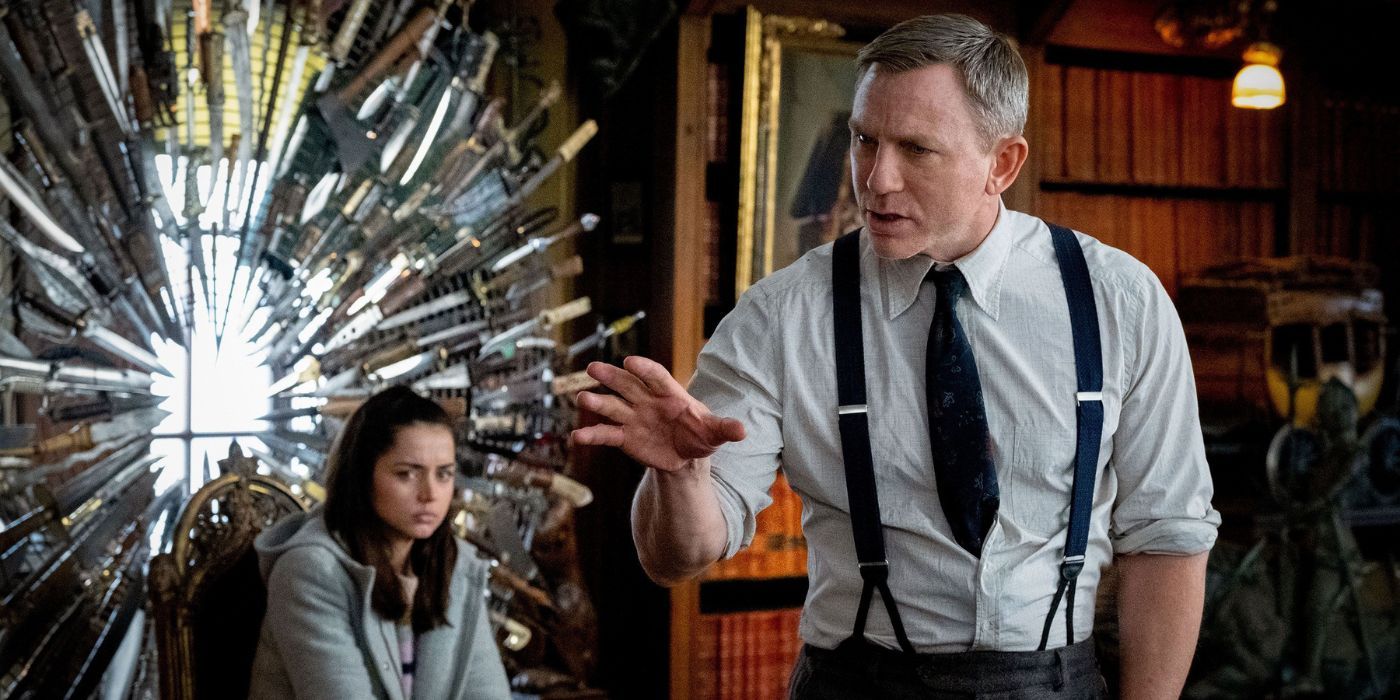
Rian Johnson’s 2019 mystery film Knives Out was an immediate success having grossed over $310 million on a budget of just $40 million and received near-ubiquitous praise from critics. In one of English-American actor Daniel Craig’s few full-blown American roles, he expertly holds his own while acting alongside many of Hollywood’s most beloved actors both new and old. Moreover, a part of why Knives Out was such a hit upon release can be attributed to how Johnson modernized the whodunit all while remaining faithful to many of its core tropes.
Knives Out was also so well-received because of how it constantly kept its audience on its toes. While that is expected of any good whodunit, it works particularly well in the film because of how unexpected many of the twists were. Additionally, the film’s star power made it difficult for audiences to disassociate their preconceived notions of some of the talent, thus making many of the movie’s reveals that much more impactful. Although the sequel didn’t recapture the same level of success, Knives Out remains one of the smartest and fun entries into the whodunit genre.
1 Memories of Murder
Crime Thriller
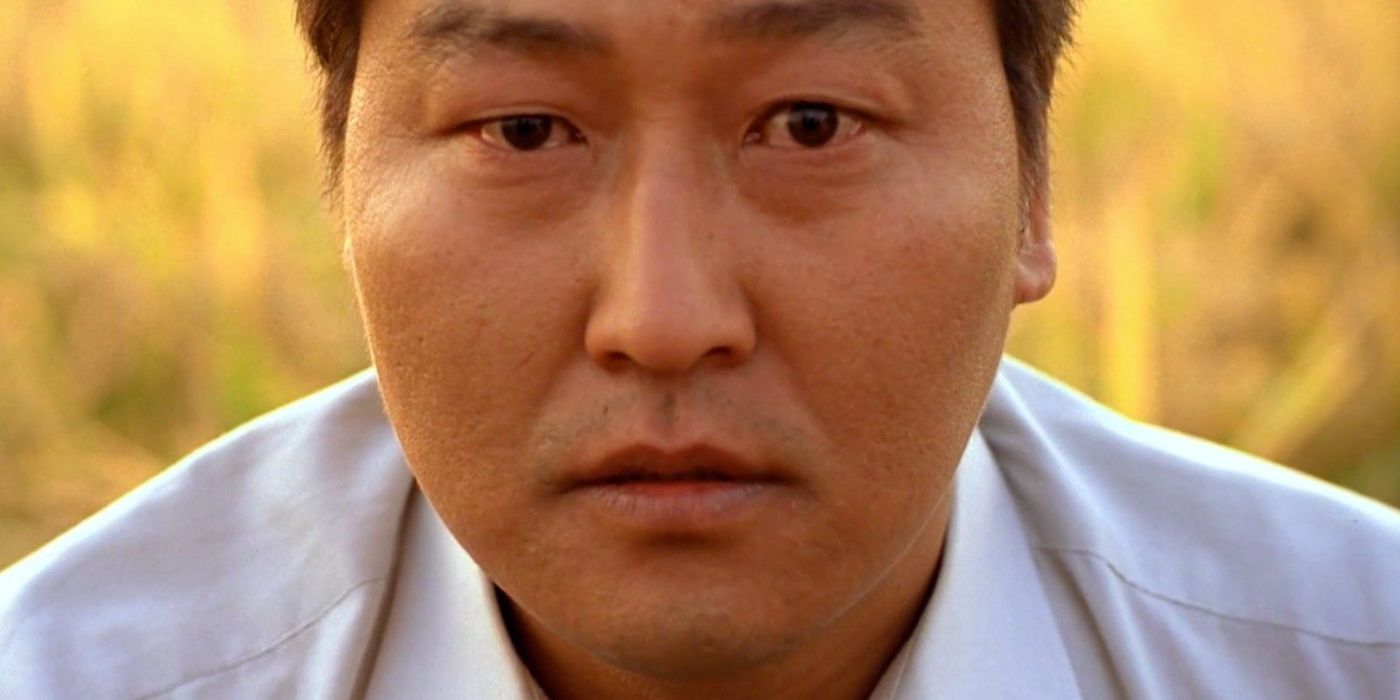
Perhaps one of the greatest crime thrillers of all time, Joon-ho’s 2003 film Memories of Murder is often considered the South Korean filmmaker’s best movie twenty years after its release. In addition to telling its audience a great and compelling story, Memories of Murder is also partially based on a series of real murders that occurred throughout the ’80s, with reports claiming the real murderer saw the film upon its theatrical release. Memories of Murder is an impressive movie largely because of its attention to detail and the stellar performances of its ensemble cast.
While most whodunits drop clues and hints as to who the killer may be, the South Korean police force didn’t at the time know the real killer’s identity. Joon-ho handled this by creating a theory in which the killer isn’t some particularly interesting or attractive individual, but rather an ordinary citizen. The protagonist looks directly at the audience as he pontificates the theory, thus furthering the ordinary citizen theory and making Memories of Murder the greatest movie like A Haunting In Venice.
